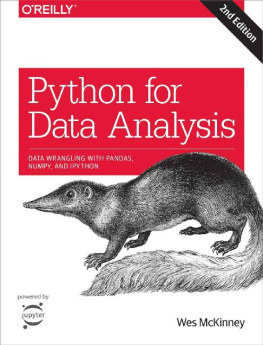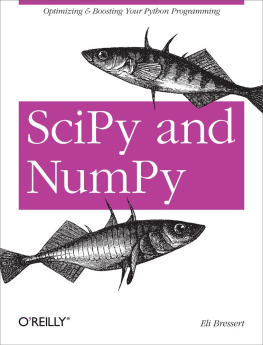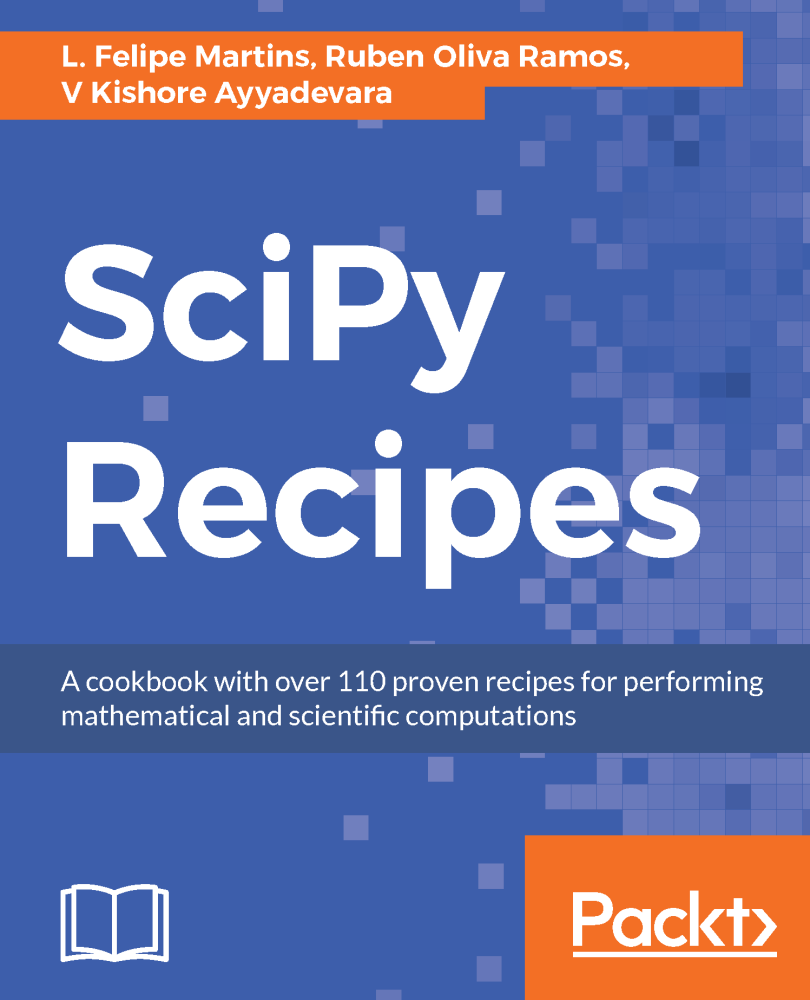L. Felipe Martins - SciPy Recipes
Here you can read online L. Felipe Martins - SciPy Recipes full text of the book (entire story) in english for free. Download pdf and epub, get meaning, cover and reviews about this ebook. year: 2017, publisher: Packt Publishing, genre: Computer. Description of the work, (preface) as well as reviews are available. Best literature library LitArk.com created for fans of good reading and offers a wide selection of genres:
Romance novel
Science fiction
Adventure
Detective
Science
History
Home and family
Prose
Art
Politics
Computer
Non-fiction
Religion
Business
Children
Humor
Choose a favorite category and find really read worthwhile books. Enjoy immersion in the world of imagination, feel the emotions of the characters or learn something new for yourself, make an fascinating discovery.

- Book:SciPy Recipes
- Author:
- Publisher:Packt Publishing
- Genre:
- Year:2017
- Rating:3 / 5
- Favourites:Add to favourites
- Your mark:
SciPy Recipes: summary, description and annotation
We offer to read an annotation, description, summary or preface (depends on what the author of the book "SciPy Recipes" wrote himself). If you haven't found the necessary information about the book — write in the comments, we will try to find it.
Tackle the most sophisticated problems associated with scientific computing and data manipulation using SciPy
About This Book
- Effective recipes on advanced scientific computations, statistics, data wrangling, data visualization, and more
- A must-have book if youre looking to solve your data-related problems using SciPy, on-the-go
Who This Book Is For
Python developers, aspiring data scientists, and analysts who want to get started with scientific computing using Python will find this book an indispensable resource. If you want to learn how to manipulate and visualize your data using the SciPy Stack, this book will also help you. A basic understanding of Python programming is all you need to get started.
What You Will Learn
- Get a solid foundation in scientific computing using Python
- Master common tasks related to SciPy and associated libraries such as NumPy, pandas, and matplotlib
- Perform mathematical operations such as linear algebra and work with the statistical and probability functions in SciPy
- Master advanced computing such as Discrete Fourier Transform and K-means with the SciPy Stack
- Implement data wrangling tasks efficiently using pandas
- Visualize your data through various graphs and charts using matplotlib
In Detail
With the SciPy Stack, you get the power to effectively process, manipulate, and visualize your data using the popular Python language. Utilizing SciPy correctly can sometimes be a very tricky proposition. This book provides the right techniques so you can use SciPy to perform different data science tasks with ease.
This book includes hands-on recipes for using the different components of the SciPy Stack such as NumPy, SciPy, matplotlib, and pandas, among others. You will use these libraries to solve real-world problems in linear algebra, numerical analysis, data visualization, and much more. The recipes included in the book will ensure you get a practical understanding not only of how a particular feature in SciPy Stack works, but also of its application to real-world problems. The independent nature of the recipes also ensure that you can pick up any one and learn about a particular feature of SciPy without reading through the other recipes, thus making the book a very handy and useful guide.
Style and approach
This book consists of hands-on recipes where youll deal with real-world problems.
Youll execute a series of tasks as you walk through scientific computing challenges using SciPy.
Your one-stop solution for common and not-so-common pain points, this is a book that you must have on the shelf.
L. Felipe Martins: author's other books
Who wrote SciPy Recipes? Find out the surname, the name of the author of the book and a list of all author's works by series.

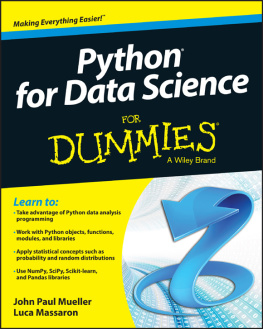
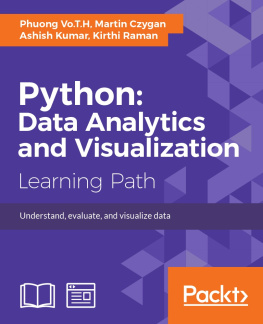
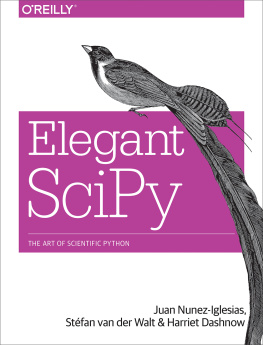
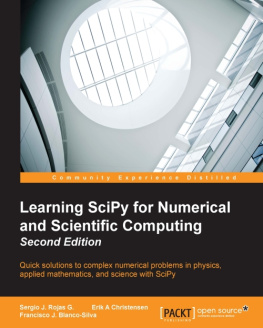
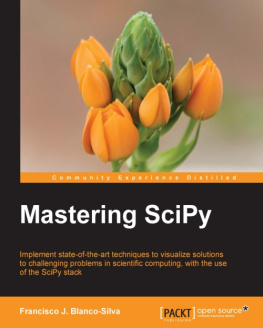
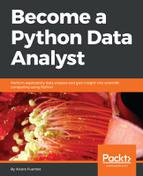
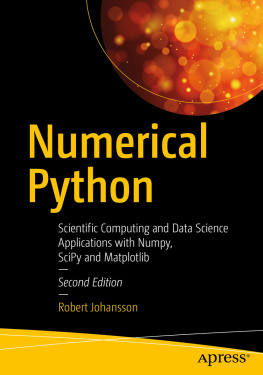
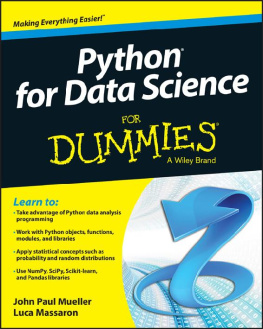
![Eli Bressert [Eli Bressert] - SciPy and NumPy](/uploads/posts/book/119331/thumbs/eli-bressert-eli-bressert-scipy-and-numpy.jpg)
